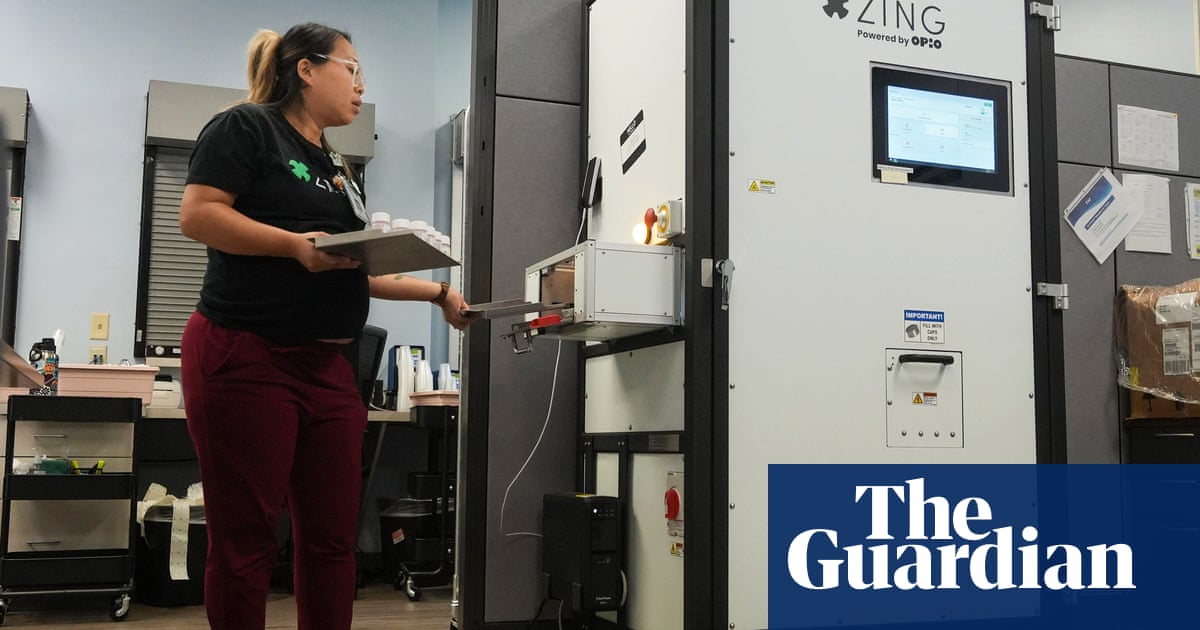Could automated methadone dispensing machines like “Bodhi” and “Zing” signal a much larger conversion in patient care? This article explores the expanding role of automation in healthcare, showcasing how it’s streamlining processes and possibly alleviating the nursing shortage [[2]]. From pharmacies to surgical suites, discover the key trends and ethical considerations that will shape the future of healthcare automation [[1]], ultimately impacting efficiency and patient outcomes [[3]].
The Future of Automation in Healthcare: Beyond Methadone Dispensing
Table of Contents
The story of “Bodhi” and “zing,” the automated methadone dispensing machines,offers a captivating glimpse into the future of healthcare. These machines are not just about automating a repetitive task; thay represent a shift towards freeing up healthcare professionals to focus on patient care and addressing critical labor shortages. Let’s explore the potential trends and implications of this technological evolution.
The Rise of Automation in Pharmacy and Beyond
The success of machines like Bodhi and Zing highlights a broader trend: the increasing adoption of automation in pharmacy and healthcare settings. This isn’t limited to methadone clinics. We’re seeing automation in various areas, including medication dispensing, inventory management, and even surgical procedures.
Real-life exmaple: Many hospitals now use automated dispensing cabinets to manage medications, reducing errors and improving efficiency.
Data Point: The global pharmacy automation market is projected to reach billions of dollars in the coming years, driven by factors like rising healthcare costs and the need for improved patient safety.
Addressing the Nursing Shortage and Improving Patient Care
One of the most meaningful benefits of automation is its potential to alleviate the nursing shortage. By automating tasks like medication dispensing, nurses can dedicate more time to direct patient care, counseling, and education.
Pro Tip: Healthcare facilities can leverage automation to create more fulfilling roles for nurses, reducing burnout and improving retention rates.
Case Study: At man Alive, the introduction of Bodhi allowed nurse manager Lanea George to spend more time interacting with patients, leading to more in-depth conversations and better patient outcomes.
The human Element: Balancing Technology and compassion
While automation offers numerous advantages, it’s crucial to maintain the human element in healthcare. Technology should augment, not replace, the compassionate care provided by healthcare professionals.
Did you know? the most successful implementations of automation in healthcare prioritize patient-centered care, ensuring that technology enhances the patient experience.
Reader Question: How can healthcare facilities ensure that automation doesn’t lead to a dehumanized patient experience?
future trends: What to Expect
The future of healthcare automation is likely to include:
- increased use of AI and Machine Learning: AI can optimize medication management, predict patient needs, and personalize treatment plans.
- Integration with Telehealth: automation can streamline telehealth workflows, making remote care more efficient and accessible.
- Robotics in Surgery: Robotic-assisted surgery will become more prevalent, offering greater precision and minimally invasive procedures.
Keyword: Healthcare automation, pharmacy automation, nursing shortage, patient care, AI in healthcare, telehealth, robotic surgery.
ethical Considerations and Challenges
As automation becomes more widespread,it’s essential to address ethical considerations,such as data privacy,job displacement,and the potential for algorithmic bias.
Pro Tip: Healthcare providers should prioritize openness and patient consent when implementing automated systems.
Case Study: The progress of Zing faced challenges related to regulatory approvals and ensuring the machine met the specific needs of methadone clinics.
The evolution of healthcare automation is a journey,not a destination. By embracing technology thoughtfully and prioritizing patient well-being, we can create a healthcare system that is more efficient, accessible, and compassionate.
What are yoru thoughts on the future of automation in healthcare? Share your comments and insights below!

